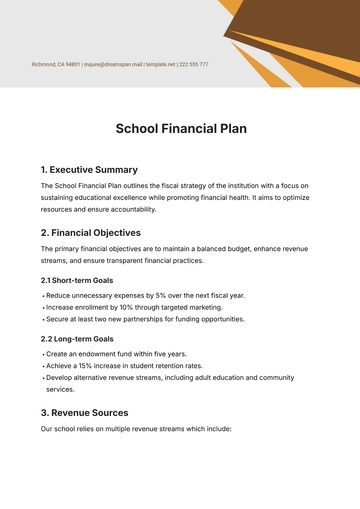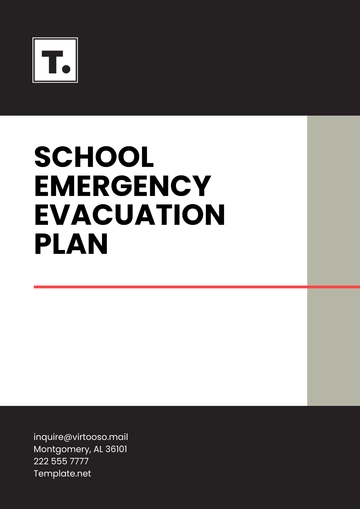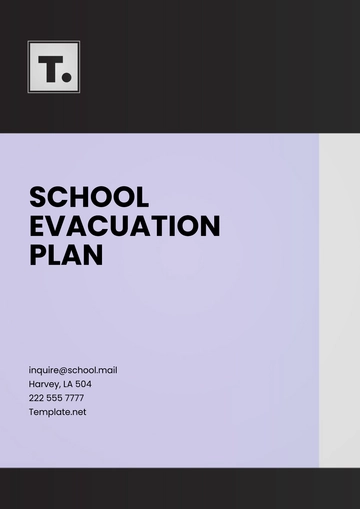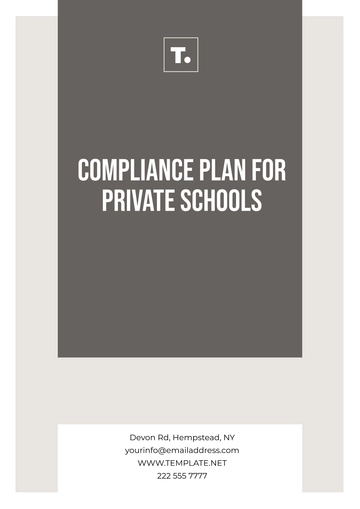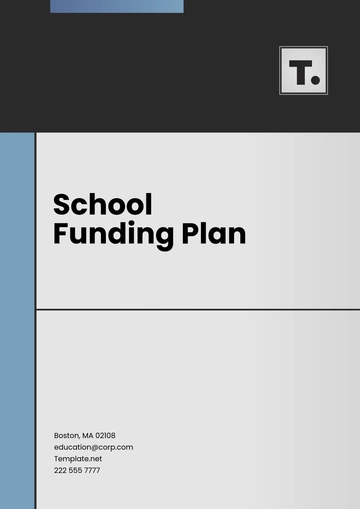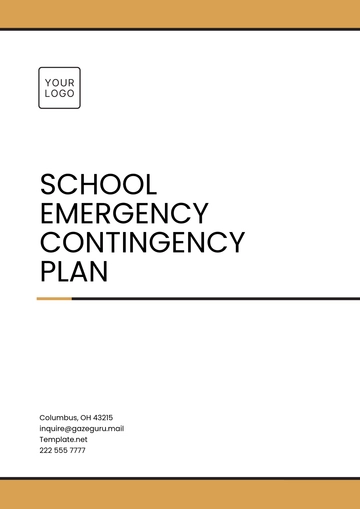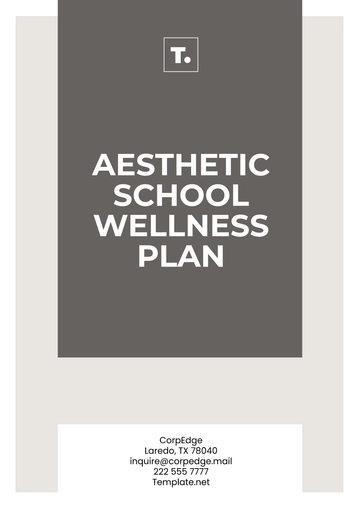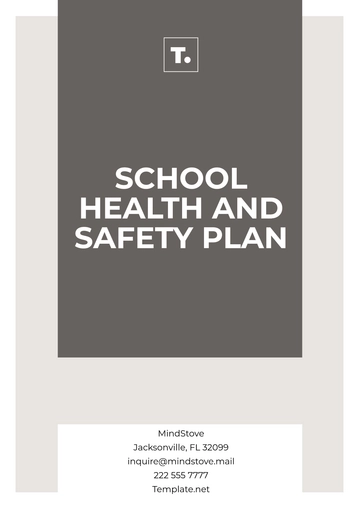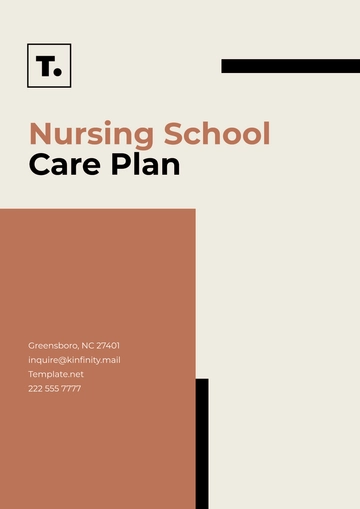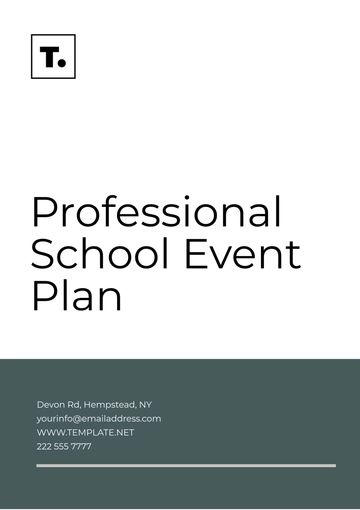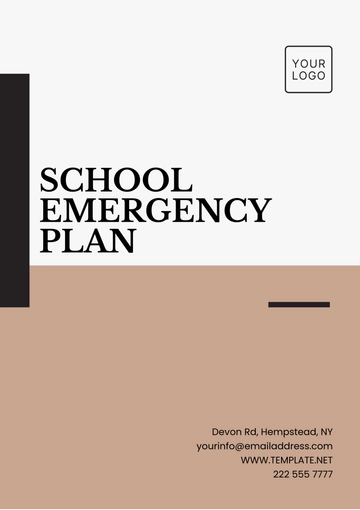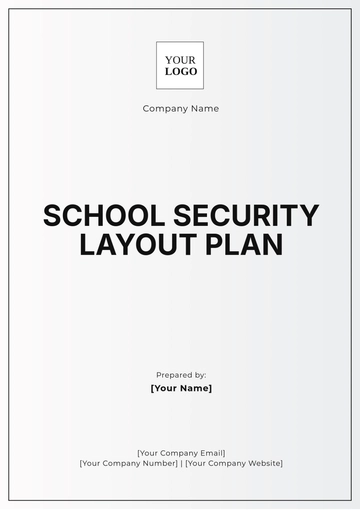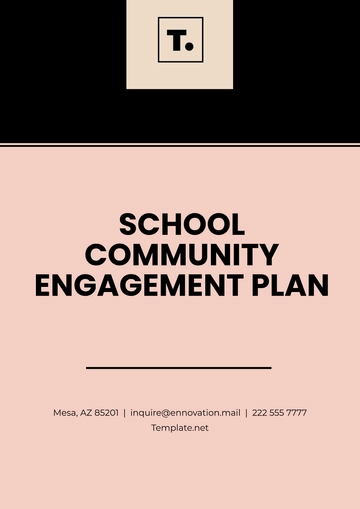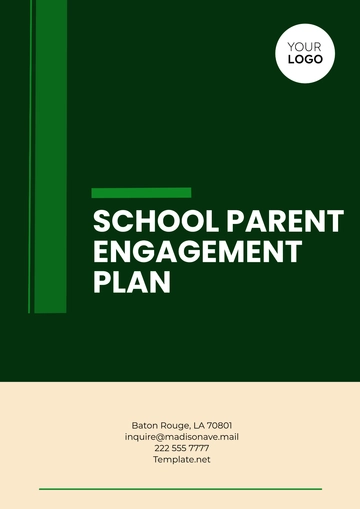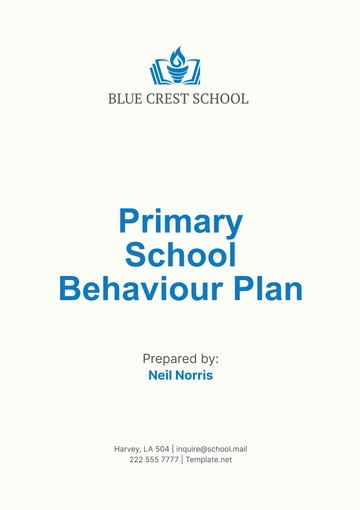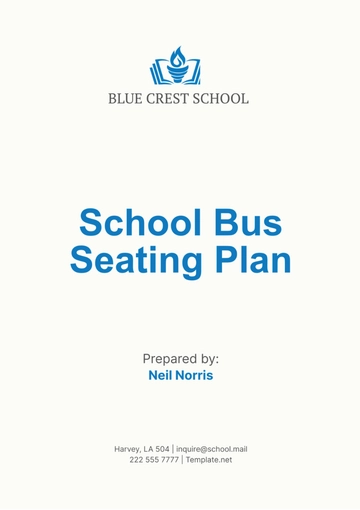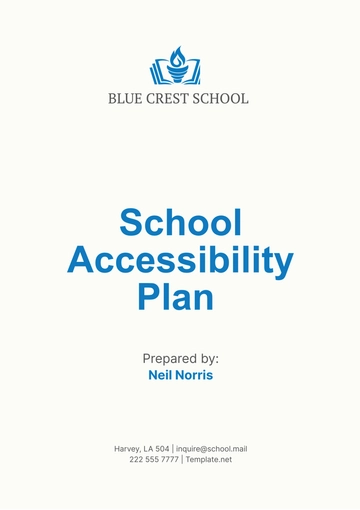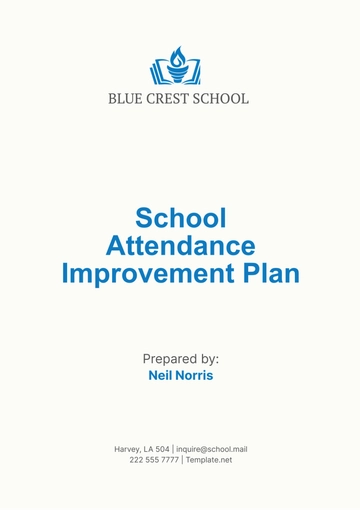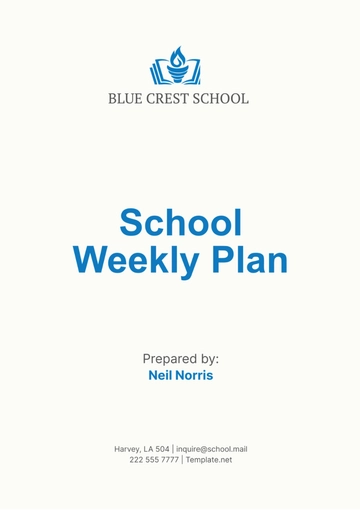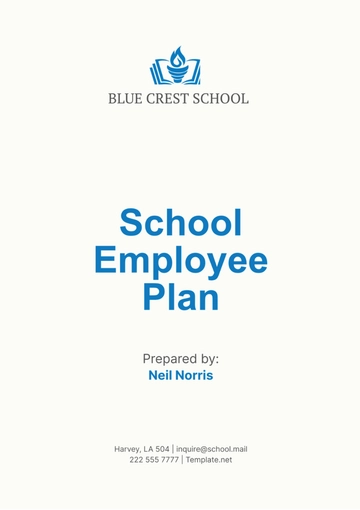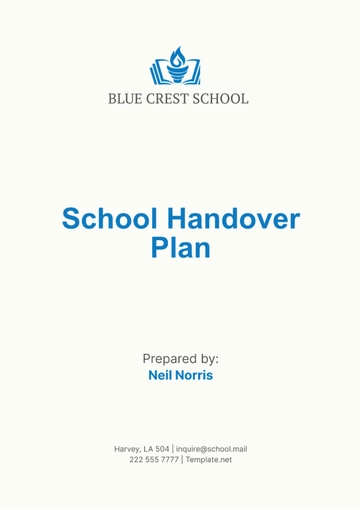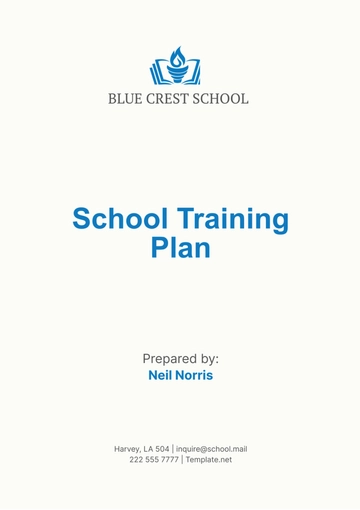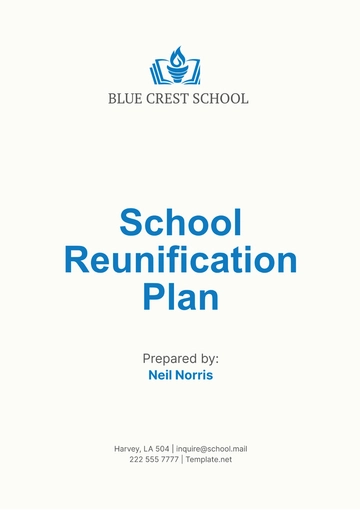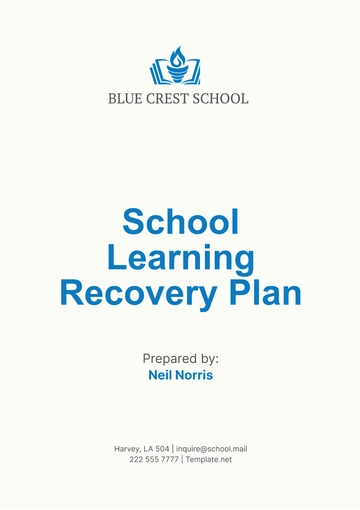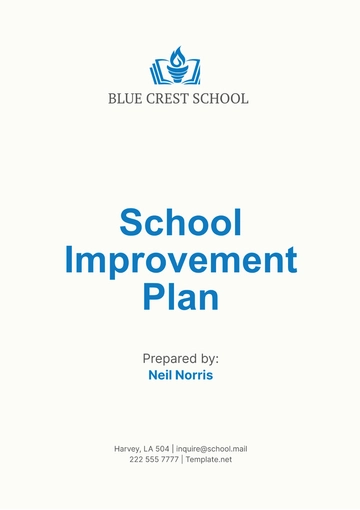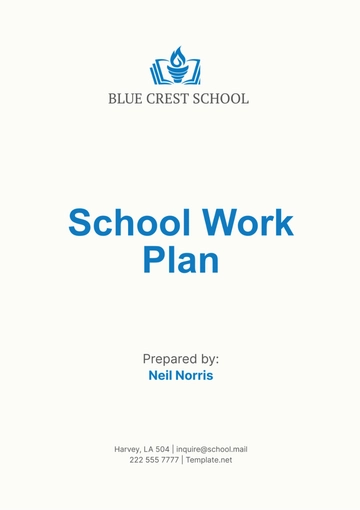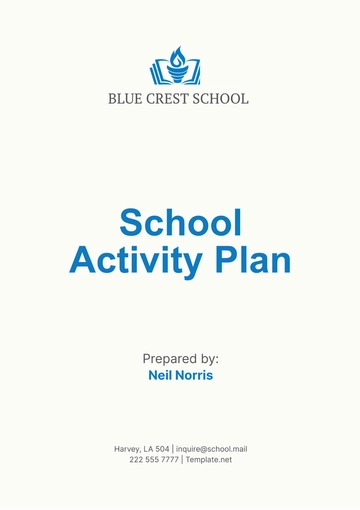Free School Support Plan
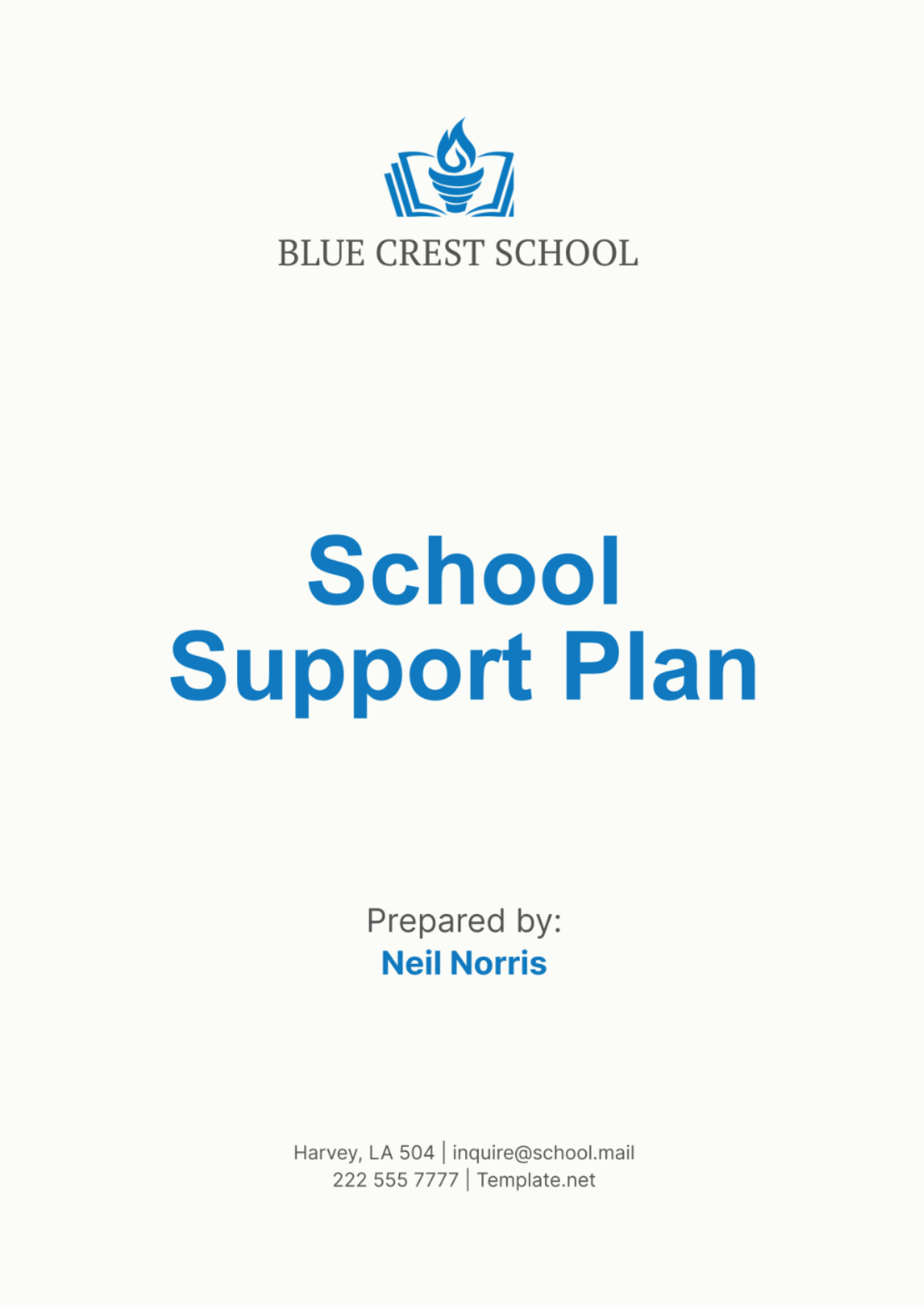
I. Student Information
[Student's Name] is a vibrant and imaginative fourth-grade student enrolled at [Your Company Name]. Born on [Date], [Student's Name] is currently [00] years old and has been a student at [Your Company Name] since kindergarten. He exhibits a keen interest in reading and writing, often showcasing creativity in his assignments. [Student's Name]'s parents, [Parents' Names], are actively involved in his education and can be reached at [Parents' Number].
[Student's Name] has been diagnosed with Attention-Deficit/Hyperactivity Disorder (ADHD), which occasionally affects his ability to maintain focus in large group settings. He receives medication management under the supervision of his pediatrician to support his academic engagement. Despite challenges, [Student's Name] demonstrates strengths in reading comprehension and expressive writing. His educators and support team at [Your Company Name] are committed to fostering [Student's Name]'s academic success and social development through personalized strategies and collaborative efforts outlined in this School Support Plan (SSP).
II. Team Members
A. Special Education Coordinator/Case Manager
[Case Manager Name] oversees the development and implementation of [Student's Name]’s SSP. She collaborates with teachers, parents, and service providers to ensure [Student's Name]’s educational needs are met effectively.
B. Classroom Teacher(s)
[Student's Name]’s homeroom teacher is [Homeroom Teacher Name], who provides daily instruction and monitors his academic progress. [Teacher Name] is his math teacher, focusing on improving his math skills.
C. School Psychologist/Counselor
[School Psychologist] conducts assessments and provides counseling support to address [Student's Name]’s social and emotional development. She collaborates closely with the school team to integrate strategies for his overall well-being.
D. Related Service Providers
Speech-Language Pathologist: [Speech-Language Pathologist] works with [Student's Name] to improve his expressive language skills, which are crucial for his communication and academic success.
Occupational Therapist: [Occupational Therapist] in developing strategies to enhance [Student's Name]’s organizational skills and sensory processing abilities, contributing to his overall school performance.
E. Parents/Guardians
[Parents' Names] are deeply involved in the educational journey of [Student's Name]. They provide continuous support at home by assisting with homework, encouraging good study habits, and fostering an environment conducive to learning. Additionally, [Parents' Names] actively participate in parent-teacher conferences and other meetings organized by the school to discuss [Student's Name]'s academic progress and developmental milestones. Their engagement ensures that [Student's Name] receives the guidance and encouragement needed to succeed in his educational pursuits.
F. Other Relevant Staff or Consultants
At the present time, there are no extra consultants participating in [Student's Name]’s Student Support Plan (SSP). However, the team remains fully open and willing to collaborate with any specialists whose expertise could potentially enhance and benefit [Student's Name]’s educational experience.
III. Current Educational Performance
A. Academic Strengths
[Student's Name] not only excels in reading comprehension but also showcases advanced writing skills. He frequently integrates creativity and an impressive level of detail into his assignments, demonstrating a profound understanding of the material and an ability to communicate his ideas effectively.
B. Academic Challenges
Although [Student's Name] demonstrates considerable strengths in language arts, excelling in reading, writing, and comprehension, they encounter significant difficulties in the subject of mathematics. These challenges are most evident when dealing with complex problem-solving tasks and in situations that require them to sustain their concentration for extended periods.
C. Behavioral Observations
During class, [Student's Name] has a tendency to become easily distracted, which can result in occasional interruptions while lessons are being conducted. However, it has been observed that he responds positively and effectively to clear routines and structured activities.
D. Social Skills and Peer Interactions
[Student's Name] has successfully established positive relationships with several of their classmates. However, they might benefit from additional support and guidance when it comes to initiating interactions with new peers and understanding the complexities of social dynamics within the group.
E. Assessment Data
Recent assessments have provided a comprehensive evaluation of [Student's Name]'s academic performance across various subjects. The results of these assessments indicate that in the areas of reading and writing, [Student's Name] is performing at a level that is consistent with grade-level expectations. However, in the area of mathematics, [Student's Name]'s performance does not meet the standard for his current grade and is considered below grade level. Furthermore, the collected data emphasize the importance of providing [Student's Name] with targeted support to enhance his organizational skills as well as his ability to maintain sustained attention.
IV. Goals and Objectives
A. Academic Goals
By the conclusion of the current semester, [Student's Name] will have significantly enhanced his abilities in solving mathematical problems. This improvement will be evident through his academic performance, as he will attain a grade of B on math assessments. This achievement will highlight the tangible progress he has made in comparison to his current standing, where he presently holds a grade of C.
B. Behavioral Goals
The student named [Student's Name] will work on reducing interruptions during class discussions by implementing several strategies. These strategies include using a specific fidget tool designed to help maintain focus and choosing to sit in a designated quiet area in the classroom to minimize the potential for distractions.
C. Social/Emotional Goals
Over the course of the entire school year, [Student's Name] will take part in social skills groups on a weekly basis. These groups will be led and facilitated by [School Psychologist] with the specific aim of improving [Student's Name]'s capacity to start conversations and cultivate genuine and meaningful friendships.
D. Other Goals
To foster a sense of independence and improve organizational skills, [Student's Name] will systematically arrange his backpack and ensure all necessary materials are in order every morning before departing for school. This practice aims to minimize the frequency of forgotten assignments or supplies, thereby enhancing his preparedness and reducing any potential disruptions to his academic routine.
V. Strategies and Interventions
A. Instructional Strategies
Teachers will provide [Student's Name] with various visual aids and detailed step-by-step instructions to assist with math assignments, with the aim of enhancing comprehension and facilitating the completion of tasks. Additionally, educators will take care to break down complex tasks into smaller, more manageable steps to offer additional support and improve [Student's Name]'s learning process.
B. Behavioral Interventions
The implementation of a behavior chart will serve to meticulously monitor and document the positive behaviors demonstrated by [Student's Name] while in the classroom. This strategy is designed to reinforce established expectations and foster a consistent pattern of participation. The behavior chart not only provides a visual representation of [Student's Name]’s positive actions but also helps in highlighting areas where he excels, thereby encouraging continued effort and improvement.
Moreover, the introduction of a timer during periods designated for independent work will act as a periodic reminder for [Student's Name] to maintain his focus. This approach is intended to assist [Student's Name] in managing his time more effectively, ensuring that he stays on task and completes his work within the allotted timeframe. By incorporating these strategies, we aim to create an environment that supports and promotes [Student's Name]’s academic and behavioral growth.
C. Support Services
[Student's Name] will be scheduled for weekly sessions with [Speech-Language Pathologist]. These sessions are specifically designed to enhance and improve [Student's Name]'s expressive language abilities through a variety of targeted activities and exercises that are meticulously planned to address his unique needs. In addition, [Occupational Therapist] will work in close collaboration with [Student's Name]'s teachers to seamlessly integrate sensory breaks into his everyday routine. These sensory breaks are intended to promote self-regulation, thereby helping [Student's Name] manage stress more effectively throughout the school day.
D. Transition Plans
As [Student's Name] transitions from one classroom to another throughout the course of the school day, the teachers will utilize a blend of visual schedules and verbal reminders. These strategies are specifically designed to aid him in understanding and predicting the different activities and alterations he will come across during the entire day.
VI. Roles and Responsibilities
A. Responsibilities of Special Education Coordinator/Case Manager
[Case Manager Name] will be responsible for overseeing the entire implementation of [Student's Name]’s Student Success Plan (SSP). As part of her duties, she will coordinate and schedule meetings with various team members involved in [Student's Name]’s education and well-being. Furthermore, she will closely monitor [Student's Name]’s progress toward achieving the set goals outlined in the SSP. If necessary, she will make adjustments to interventions and strategies based on the data collected and the feedback received from both [Student's Name] and the team members.
B. Responsibilities of Classroom Teacher(s)
[Homeroom Teacher Name] and [Teacher Name] are committed to implementing the instructional strategies that are outlined in the Student Support Plan (SSP) to foster the academic growth of [Student's Name]. In their effort to support his educational development, they will offer continuous feedback on his academic performance, ensuring that he receives the guidance he needs to improve. Furthermore, they will work collaboratively with specialists who can provide additional insights and support tailored to [Student's Name]'s unique needs. Additionally, they will maintain open lines of communication with [Case Manager Name], keeping them informed about [Student's Name]'s progress and any pertinent developments.
C. Responsibilities of Related Service Providers
The Speech-Language Pathologist will be responsible for conducting therapy sessions aimed at enhancing the expressive language skills of [Student's Name]. Concurrently, the Occupational Therapist will work closely with the teaching staff to incorporate sensory breaks into his daily routine. Together, they will consistently monitor [Student's Name]'s progress and make necessary adjustments to their strategies to address his changing requirements effectively.
D. Responsibilities of Parents/Guardians
[Parents' Names] will actively support [Student's Name]'s academic and personal development goals at home by diligently reinforcing the strategies recommended by the school team. They are committed to attending all scheduled meetings with [Case Manager Name] and the teachers, during which they will provide valuable insights into [Student's Name]'s progress and developmental milestones.
Moreover, [Parents' Names] will work collaboratively with the school team to ensure the implementation of consistent routines and expectations, thereby creating a cohesive and supportive environment that facilitates [Student's Name]'s success.
VII. Monitoring and Evaluation
A. Data Collection Methods
Teachers will be responsible for keeping detailed weekly progress reports on the academic performance and behavioral goals of [Student's Name]. Meanwhile, the Speech-Language Pathologist and the Occupational Therapist will document their individual therapy sessions with [Student's Name] and closely monitor progress toward achieving therapeutic objectives. This will be accomplished through thorough assessments and careful observations.
B. Review Meetings
Meetings to review the student's progress will be scheduled every three months. These quarterly review meetings serve the purpose of evaluating how [Student's Name] is advancing and making necessary modifications to the Student Support Plan (SSP). In addition to these quarterly meetings, there will also be annual meetings with [Student's Name]’s parents or guardians. These yearly gatherings are designed to create opportunities for discussing long-term objectives, planning for transitions, and making any needed adjustments to the support services being provided.
VIII. Communication Plan
A. Communication Channels
Teachers will communicate weekly updates via email to parents/guardians, detailing [Student's Name]’s academic achievements and behavioral improvements. [Case Manager Name] will facilitate regular communication between team members through bi-weekly meetings and email updates to ensure consistency and collaboration in implementing strategies.
B. Reporting Progress
Progress reports summarizing the academic, behavioral, and therapeutic progress of [Student's Name] will be provided to the parents or guardians at the conclusion of each academic quarter. In addition to this, meetings will be held with [Case Manager Name] to facilitate comprehensive discussions regarding [Student's Name]’s development. These meetings will also serve as an opportunity to make any necessary adjustments to the Student Support Plan (SSP) based on the current needs and progress of [Student's Name].
IX. Review and Revision
A. Schedule for Plan Review
At the conclusion of each academic semester, a formal review of the Student Success Plan (SSP) will be conducted to assess [Student's Name]’s progress and evolving needs. Based on this assessment, necessary adjustments will be made to the plan. Furthermore, if there are substantial changes in [Student's Name]’s performance or circumstances at any point during the semester, additional reviews may take place. These supplementary evaluations are intended to ensure that the plan continues to be relevant and effective in supporting [Student's Name]’s academic and personal development.
B. Process for Plan Revision
The team members involved in the student's educational process will work together to review and revise goals, strategies, and interventions whenever necessary. Any changes made to the Student Support Plan (SSP) will be thoroughly documented. Furthermore, these amendments will be communicated to all parties who have a stake in the student's education. This process is designed to ensure full transparency and to keep everyone aligned with the educational objectives set for [Student's Name].
- 100% Customizable, free editor
- Access 1 Million+ Templates, photo’s & graphics
- Download or share as a template
- Click and replace photos, graphics, text, backgrounds
- Resize, crop, AI write & more
- Access advanced editor
Introducing the School Support Plan Template from Template.net – an editable and fully customizable solution for educators. Tailor strategies to meet individual student needs effortlessly. Enhance your plan with the innovative AI Editor Tool, ensuring precision and efficiency in crafting comprehensive support plans. Empower your educational approach with this versatile and dynamic template.
You may also like
- Finance Plan
- Construction Plan
- Sales Plan
- Development Plan
- Career Plan
- Budget Plan
- HR Plan
- Education Plan
- Transition Plan
- Work Plan
- Training Plan
- Communication Plan
- Operation Plan
- Health And Safety Plan
- Strategy Plan
- Professional Development Plan
- Advertising Plan
- Risk Management Plan
- Restaurant Plan
- School Plan
- Nursing Home Patient Care Plan
- Nursing Care Plan
- Plan Event
- Startup Plan
- Social Media Plan
- Staffing Plan
- Annual Plan
- Content Plan
- Payment Plan
- Implementation Plan
- Hotel Plan
- Workout Plan
- Accounting Plan
- Campaign Plan
- Essay Plan
- 30 60 90 Day Plan
- Research Plan
- Recruitment Plan
- 90 Day Plan
- Quarterly Plan
- Emergency Plan
- 5 Year Plan
- Gym Plan
- Personal Plan
- IT and Software Plan
- Treatment Plan
- Real Estate Plan
- Law Firm Plan
- Healthcare Plan
- Improvement Plan
- Media Plan
- 5 Year Business Plan
- Learning Plan
- Marketing Campaign Plan
- Travel Agency Plan
- Cleaning Services Plan
- Interior Design Plan
- Performance Plan
- PR Plan
- Birth Plan
- Life Plan
- SEO Plan
- Disaster Recovery Plan
- Continuity Plan
- Launch Plan
- Legal Plan
- Behavior Plan
- Performance Improvement Plan
- Salon Plan
- Security Plan
- Security Management Plan
- Employee Development Plan
- Quality Plan
- Service Improvement Plan
- Growth Plan
- Incident Response Plan
- Basketball Plan
- Emergency Action Plan
- Product Launch Plan
- Spa Plan
- Employee Training Plan
- Data Analysis Plan
- Employee Action Plan
- Territory Plan
- Audit Plan
- Classroom Plan
- Activity Plan
- Parenting Plan
- Care Plan
- Project Execution Plan
- Exercise Plan
- Internship Plan
- Software Development Plan
- Continuous Improvement Plan
- Leave Plan
- 90 Day Sales Plan
- Advertising Agency Plan
- Employee Transition Plan
- Smart Action Plan
- Workplace Safety Plan
- Behavior Change Plan
- Contingency Plan
- Continuity of Operations Plan
- Health Plan
- Quality Control Plan
- Self Plan
- Sports Development Plan
- Change Management Plan
- Ecommerce Plan
- Personal Financial Plan
- Process Improvement Plan
- 30-60-90 Day Sales Plan
- Crisis Management Plan
- Engagement Plan
- Execution Plan
- Pandemic Plan
- Quality Assurance Plan
- Service Continuity Plan
- Agile Project Plan
- Fundraising Plan
- Job Transition Plan
- Asset Maintenance Plan
- Maintenance Plan
- Software Test Plan
- Staff Training and Development Plan
- 3 Year Plan
- Brand Activation Plan
- Release Plan
- Resource Plan
- Risk Mitigation Plan
- Teacher Plan
- 30 60 90 Day Plan for New Manager
- Food Safety Plan
- Food Truck Plan
- Hiring Plan
- Quality Management Plan
- Wellness Plan
- Behavior Intervention Plan
- Bonus Plan
- Investment Plan
- Maternity Leave Plan
- Pandemic Response Plan
- Succession Planning
- Coaching Plan
- Configuration Management Plan
- Remote Work Plan
- Self Care Plan
- Teaching Plan
- 100-Day Plan
- HACCP Plan
- Student Plan
- Sustainability Plan
- 30 60 90 Day Plan for Interview
- Access Plan
- Site Specific Safety Plan
